In Focus This Week
Election Officials Gather In Salt Lake City
More than 800 attend Election Center’s 40th Annual Conference
By M. Mindy Moretti
electionline.org
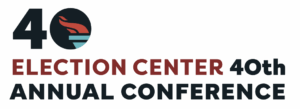 The year was 1985. The top song for the year was “Careless Whisper” by Wham, “Back to the Future” was the number one grossing movie and Live Aid was the event of the year.
The year was 1985. The top song for the year was “Careless Whisper” by Wham, “Back to the Future” was the number one grossing movie and Live Aid was the event of the year.
Also that year, elections officials from all over the country gathered in New Orleans for Election Center’s first Annual Conference.
This year, the song of the summer is “Ordinary” by Alex Warren [so says Spotify], the top grossing movie so far is “A Minecraft Movie” and the event of the year was clearly the Election Center’s 40th Annual Conference in Salt Lake City from August 20-22 where more than 800 elections officials, vendors, academics and others gathered to learn, trauma bond and have a bit of fun.
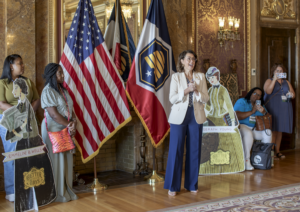
Utah Lt. Gov. Deidre Henderson. Election Center photo by Karl Dukstein.
While the conference technically didn’t kick off until Thursday morning, Wednesday was jam-packed with pre-conference events including committee meetings, a hands-on workshop and training on Artificial Intelligence from the folks at Microsoft and The Elections Group and for the first time ever a CLE course covering requests for election data and equipment.
Also on Wednesday, about 300 people went on a tour of the Salt Lake County Clerk’s elections division and the state capitol where participants got to hear from Lt. Gov. Diedre Henderson, who is the state’s chief election official.
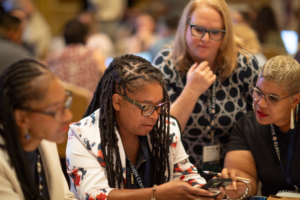
Hands on learning about AI. Election Center photo by Karl Dukstein.
Henderson spoke about suffrage in Utah. Utah was the first state to allow a woman to vote. Seraph Young Ford who cast her ballot in municipal elections on Valentine’s Day 1870. Henderson also spoke about Utah’s current voting system and her career path.
The conference officially kicked off on Thursday with keynote speakers Ben Ginsberg and Bob Bauer. Bauer and Ginsberg first served together on the Presidential Commission on Election Administration which was created by Executive Order by President Barack Obama in 2013. They now serve as co-chairs of the Pillars of the Community, which seeks to bolster faith in elections by hosting conversations between a group of politically diverse community leaders and election officials about the ongoing work at the state and local levels to deliver an election that meets voter expectations of reliability and security.
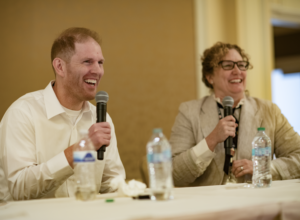
Stephen Richer and Pam Anderson. Election Center photo by Karl Dukstein.
Thursday morning also featured plenary sessions from the League of Conservative Election Officials on staying true to your values in trying times and a session on elections funding from some of the folks involved with the Bolstering Funding and Practices for Resilient Elections.
Thursday afternoon and Friday were filled with more than 30 breakout sessions covering topics ranging from security and technology to communications and outreach to management, training and logistics.
All presentations will be available to Election Center members via the resources section of their member profile in the coming days.
CERA Graduates

The sticker swap is always a highlight. Election Center photo by Karl Dukstein.
During the Friday luncheon, 140 Certified Elections/Registration Administrators (CERA), Election Center’s largest graduate class ever, graduated from the certification program in a ceremony honoring this achievement. CERA certification is the highest professional achievement for election officials and vendors in the country.
CERA graduates achieve this designation through a multi-year course of study taught by Auburn University’s Master in Public Administration (MPA) faculty in partnership with Election Center.
“Election Center congratulates the 2025 CERA graduates on the outstanding accomplishment of attaining CERA certification,” said Kathleen Hale, executive director of Election Center. “We commend this latest cohort of election officials for completing the CERA curriculum. This professional development milestone is a testament to their commitment to serving their respective voters and to free and fair elections.”

Thursday night was ’80s night. Election Center photo by Karl Dukstein.
There were nearly 100 graduates on hand at the conference to receive their certificates in person.
“The CERA program is deeply meaningful to me. It provided essential training to strengthen election integrity and build relationships, empowering me to serve my community with confidence. This program enhances my skills, fosters trust in democracy, and equips me to ensure fair, efficient elections, making a lasting impact,” said Joshua Dickard, Charleston County, South Carolina.
Awards

Election Center photo by Drew Davies.
On Thursday and Friday Election Center honored the new Lifetime Achievement and Hall of Fame inductees and 2025 Professional Practice Paper award winners. The award-winning Professional Practice Papers, and People’s Choice winners will be presented at the Election Center’s Special Workshop in February 2026.
The 2025 Hall of Fame Awards were presented to Rey Valenzuela of Maricopa County and Lisa Marra of the Arizona Secretary of State’s Office. The 2025 Lifetime Achievement Awards went to Lori Mitchell of Chaffee County, Colorado; Derek Bowens of Durham County, North Carolina and Shauna Dozier of Clayton County, Georgia.
Professional Practice Papers
Beacon-local: Civic Education Internship, King County, Washington
Beacon-state: Recruiting the Election Workforce of the Future: The Arizona Election Administration Student Fellowship Program Arizona Secretary of State in partnership with Arizona’s County Election officials, the Bipartisan Policy Center and the University of Southern California Schwarzenegger Institute
Democracy: 2023-2024 Biennial Report of St. Louis County, St. Louis County, Missouri
Eagle: Introducing the Clerk’s Election Dashboard, Hillsborough County, Florida
Freedom: Owlbert Learns to Vote, Charleston County, South Carolina
Guardian–local: Securing the Vote, Strengthening the City: Denver’s Citywide Continuity & Security Initiative, Denver, Colorado
Guardian-state: Michigan Election Security 101: The Secure Election Experience Michigan Bureau of Elections, Michigan
Independence: Elections Explained: A Voter Engagement and Trust-Building Initiative, Snohomish County, Washington
Independence: Multilingual Election Worker Recruitment Tool, Los Angeles County, California
Stewardship: Don’t Overlook It – Overlay It! The Simple Solution That Ensures Every Provisional Vote Can Count, Fairfax County, Virginia
Stars & Stripes: Durham County Supplemental Emergency Response Plan, Durham County, North Carolina
Stars & Stripes: Today’s Special: Election Ready “Takeout” Stickers, Palm Beach County, Florida
electionline Daily News Email
 What’s the best part of waking up? electionline Daily News in your inbox of course so be sure to sign up for your daily dose.
What’s the best part of waking up? electionline Daily News in your inbox of course so be sure to sign up for your daily dose.
Each morning you’ll receive the top headlines of the day, plus a listing of states featured in that day’s news round up.
To sign up, simply visit our site and provide us with your email and you’ll begin receiving the news in your inbox each morning.
We Google so you don’t have to!
Election News This Week
 Federal Update: According to a report from NPR, the Administration has indicated it may withhold tens of millions of dollars in election security funding if states don’t comply with its voting policy goals. The money comes from a Department of Homeland Security (DHS) grant program, and voting officials say new requirements from the administration will make the money inaccessible for most of the country. About $28 million — or 3% of the overall Homeland Security Grant Program — is devoted to election security and now at risk, though some officials and experts worry that the new requirements could also endanger hundreds of millions of dollars in other grants for law enforcement. The grant money in question is administered within DHS by FEMA, and is meant to help state and local governments prepare for and prevent terrorism and disasters. Heather Honey, a prominent election activist whose research questioned the 2020 election results is now working in an election-related leadership position at the U.S. Department of Homeland Security. Honey is now listed as a deputy assistant secretary for election integrity, according to an organizational chart on the DHS website. Her hiring was first reported by Democracy Docket. Deputy assistant secretaries are often involved in drafting executive orders and crafting policies, and serve as liaisons to the White House and the National Security Council, ProPublica reported. The Department of Education announced on August 19 that colleges may no longer use Federal Work Study (FWS) funds to employ students in political activities, rolling back a policy that allowed taxpayer dollars to pay students serving as poll workers, voter hotline staff, or in voter registration drives. In its new guidance, the department said institutions are prohibited from using FWS funds “to employ students whose work involves any partisan or nonpartisan political activity.” The agency classified jobs such as poll workers, voter assistance staff, and those supporting voting legislation as ineligible because “these activities support the process of voting which is a quintessential political activity.” At the same time, the department reiterated that schools must continue to make a “good faith” effort to distribute voter registration forms to students. It also directed institutions to implement “proper controls” to ensure that no FWS-funded positions involve political work.
Federal Update: According to a report from NPR, the Administration has indicated it may withhold tens of millions of dollars in election security funding if states don’t comply with its voting policy goals. The money comes from a Department of Homeland Security (DHS) grant program, and voting officials say new requirements from the administration will make the money inaccessible for most of the country. About $28 million — or 3% of the overall Homeland Security Grant Program — is devoted to election security and now at risk, though some officials and experts worry that the new requirements could also endanger hundreds of millions of dollars in other grants for law enforcement. The grant money in question is administered within DHS by FEMA, and is meant to help state and local governments prepare for and prevent terrorism and disasters. Heather Honey, a prominent election activist whose research questioned the 2020 election results is now working in an election-related leadership position at the U.S. Department of Homeland Security. Honey is now listed as a deputy assistant secretary for election integrity, according to an organizational chart on the DHS website. Her hiring was first reported by Democracy Docket. Deputy assistant secretaries are often involved in drafting executive orders and crafting policies, and serve as liaisons to the White House and the National Security Council, ProPublica reported. The Department of Education announced on August 19 that colleges may no longer use Federal Work Study (FWS) funds to employ students in political activities, rolling back a policy that allowed taxpayer dollars to pay students serving as poll workers, voter hotline staff, or in voter registration drives. In its new guidance, the department said institutions are prohibited from using FWS funds “to employ students whose work involves any partisan or nonpartisan political activity.” The agency classified jobs such as poll workers, voter assistance staff, and those supporting voting legislation as ineligible because “these activities support the process of voting which is a quintessential political activity.” At the same time, the department reiterated that schools must continue to make a “good faith” effort to distribute voter registration forms to students. It also directed institutions to implement “proper controls” to ensure that no FWS-funded positions involve political work.
 Public Opinion: New research from the Pew Research Center has found that 58% of Americans favor allowing any voter to cast their ballot by mail if they want to. Not surprisingly, Democrats and Republicans continue to hold starkly different views: Today, 83% of Democrats and Democratic-leaning independents support no-excuse voting by mail, while 68% of Republicans and Republican leaners oppose it. Several other proposals related to the U.S. electoral system win widespread support across the political spectrum, according to a new Pew Research Center survey of 3,554 adults conducted Aug. 4-10, prior to President Donald Trump’s announcement to end mail voting. Among the most-supported proposals:
Public Opinion: New research from the Pew Research Center has found that 58% of Americans favor allowing any voter to cast their ballot by mail if they want to. Not surprisingly, Democrats and Republicans continue to hold starkly different views: Today, 83% of Democrats and Democratic-leaning independents support no-excuse voting by mail, while 68% of Republicans and Republican leaners oppose it. Several other proposals related to the U.S. electoral system win widespread support across the political spectrum, according to a new Pew Research Center survey of 3,554 adults conducted Aug. 4-10, prior to President Donald Trump’s announcement to end mail voting. Among the most-supported proposals:
- Requiring electronic voting machines to print a paper backup of a voter’s ballot (84% in favor)
- Requiring all voters to show government-issued photo identification (83%)
- Making early, in-person voting available for at least two weeks prior to the election (80%)
- Making Election Day a federal holiday (74%)
Each of these draws support from majorities in both partisan coalitions. Of the 10 proposals included in the survey, just two are more opposed by Americans than favored:
- 52% oppose banning groups from collecting completed ballots from a large number of voters to return them to election officials.
- 56% oppose removing people from registration lists if they haven’t voted recently or responded to efforts to confirm their registration and address.
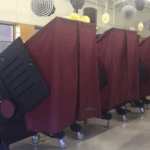 New Equipment in Louisiana: For more than three decades, Louisianans have used the same voting machines when casting ballots in every state, local and federal election. But the state is now in the process of selecting an entirely new voting system, and it could look very different than the current one that state leaders for years have decried as woefully out-of-date. This week the secretary of state’s office held the first of six public demonstrations by companies that hope to compete for the contract for the new voting system. While each is different, they all must comply with requirements state lawmakers established in 2021 — and that includes the use of paper ballots. Diane Foster, a Rapides Parish election commissioner, has been using the current system for more than 20 years and was eager to be part of the testing group. “I knew we kept talking about getting something new, so I wanted to be in on the ground floor of what the possibilities are,” said Foster. In addition to the paper trail, the 2021 law mandates several other requirements, such as using machines with “tamper-evident seals” and a prohibition against voting equipment that connects to the internet. “We want our voting machines to actually have a paper ballot component so that we can audit both the machine tabulations and the paper trail,” said Catherine Newsome, first assistant secretary of state.
New Equipment in Louisiana: For more than three decades, Louisianans have used the same voting machines when casting ballots in every state, local and federal election. But the state is now in the process of selecting an entirely new voting system, and it could look very different than the current one that state leaders for years have decried as woefully out-of-date. This week the secretary of state’s office held the first of six public demonstrations by companies that hope to compete for the contract for the new voting system. While each is different, they all must comply with requirements state lawmakers established in 2021 — and that includes the use of paper ballots. Diane Foster, a Rapides Parish election commissioner, has been using the current system for more than 20 years and was eager to be part of the testing group. “I knew we kept talking about getting something new, so I wanted to be in on the ground floor of what the possibilities are,” said Foster. In addition to the paper trail, the 2021 law mandates several other requirements, such as using machines with “tamper-evident seals” and a prohibition against voting equipment that connects to the internet. “We want our voting machines to actually have a paper ballot component so that we can audit both the machine tabulations and the paper trail,” said Catherine Newsome, first assistant secretary of state.
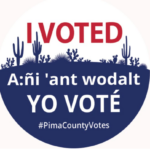 It’s Always Something: With about a month to go before the special election for the Arizona’s Seventh Congressional District, the Pima County Recorder’s Office is working on a solution to identify out-of-state cars used for election purposes. The challenge arises from magnets not sticking to cars, prompting concerns about election integrity. The office rents various cars for tasks such as courier services and delivering voting equipment, many of which are from out-of-state. This situation necessitates clear identification of these vehicles. Recorder Gabrielle Cazares-Kelly emphasized the importance of transparency in this matter. “The way they’re manufactured now they aren’t using metal on the outside,” said Cazares-Kelly. This manufacturing change renders some magnets purchased by the office unusable, which Cazares-Kelly finds peculiar. “It is one of those interesting things,” Cazares-Kelly told KVOA “If we don’t have those magnets on the side… people question who are these people and why are they coming in from out-of-state,” said Cazares-Kelly. Efforts to resolve this issue are ongoing. “We’re still trying to figure that out – we’re troubleshooting a few ideas,” said Cazares-Kelly. One possible solution being considered is the use of window clings instead of magnets.
It’s Always Something: With about a month to go before the special election for the Arizona’s Seventh Congressional District, the Pima County Recorder’s Office is working on a solution to identify out-of-state cars used for election purposes. The challenge arises from magnets not sticking to cars, prompting concerns about election integrity. The office rents various cars for tasks such as courier services and delivering voting equipment, many of which are from out-of-state. This situation necessitates clear identification of these vehicles. Recorder Gabrielle Cazares-Kelly emphasized the importance of transparency in this matter. “The way they’re manufactured now they aren’t using metal on the outside,” said Cazares-Kelly. This manufacturing change renders some magnets purchased by the office unusable, which Cazares-Kelly finds peculiar. “It is one of those interesting things,” Cazares-Kelly told KVOA “If we don’t have those magnets on the side… people question who are these people and why are they coming in from out-of-state,” said Cazares-Kelly. Efforts to resolve this issue are ongoing. “We’re still trying to figure that out – we’re troubleshooting a few ideas,” said Cazares-Kelly. One possible solution being considered is the use of window clings instead of magnets.
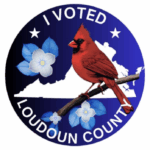 Sticker News: Loudoun County, Virginia officials unveiled the winners of the 2025 ‘I Voted’ sticker contest this week.Three winners were chosen from dozens of entries. First Place: The winning design is by Tonya Sutherland. Her sticker incorporates the state flower, dogwood, and the state bird, a Northern Cardinal, over an outline of the Commonwealth. Second Place: The second-place design is by Melissa Lew and features raised hands and a red checkmark Third Place: The third-place design is by Samantha Widjaja, with elements of the United States flag and the Statue of Liberty’s torch In July, Loudoun County residents were asked to submit designs of a circle, two inches in diameter, that includes the phrase “I Voted”, a variation of the theme, and no more than four colors. The winning sticker design will be used for the upcoming November 5, 2025, general election and given to voters at early voting sites and those who vote on Election Day.
Sticker News: Loudoun County, Virginia officials unveiled the winners of the 2025 ‘I Voted’ sticker contest this week.Three winners were chosen from dozens of entries. First Place: The winning design is by Tonya Sutherland. Her sticker incorporates the state flower, dogwood, and the state bird, a Northern Cardinal, over an outline of the Commonwealth. Second Place: The second-place design is by Melissa Lew and features raised hands and a red checkmark Third Place: The third-place design is by Samantha Widjaja, with elements of the United States flag and the Statue of Liberty’s torch In July, Loudoun County residents were asked to submit designs of a circle, two inches in diameter, that includes the phrase “I Voted”, a variation of the theme, and no more than four colors. The winning sticker design will be used for the upcoming November 5, 2025, general election and given to voters at early voting sites and those who vote on Election Day.
Personnel News: Gabe Sterling has stepped down as the COO of the Georgia secretary of state’s office. Allison Russo has announced her candidacy for Ohio secretary of state. Teresa Schafer has joined the Belmont County, Ohio board of elections. Former Rehoboth Beach, Delaware Inspector of Elections Wayne Steele was recognized for his 24 years of service during a recent commissioner meeting. Pitt County, North Carolina Board of Elections Chair Gary Weaver has resigned. Neal Driver has been appointed the new chair of the Pitt County, North Carolina board of elections. Michele Brant, an independent and former clerk for the board of supervisors, has won a special election to serve as the Madison County, Iowa auditor. Taunton County, New York Election Commissioner Frank Biedak has resigned. Surry County, North Carolina Elections Director Michella Huff is stepping down after five years. Douglas County, Nebraska poll worker George Reed was honored this week for serving for more than 60 years.
New Research and Resources
 2025 Legislation: Every year, state lawmakers consider thousands of bills that would change how Americans vote and how elections are administered. Ballotpedia’s State of Election Administration Legislation 2025 Mid-Year Report provides insights, analysis, and takeaways from the 4,705 election-related bills Ballotpedia tracked this year. The number of elections-related bills and resolutions surpasses the total for 2022, 2023, and 2024. There are more than 500 new laws, nearing the most for any year in that time period. As in previous years, Republican lawmakers and Republican trifecta states are driving most of this activity. This trend reflects both their advantage in legislative control—holding majorities in 57 of the 99 state legislative chambers—and greater control of state governments in general, with 23 trifectas compared to 15 for Democrats. Unless otherwise noted, the report covers all U.S. election-related legislative activity from Jan. 1 through Aug. 15, 2025.
2025 Legislation: Every year, state lawmakers consider thousands of bills that would change how Americans vote and how elections are administered. Ballotpedia’s State of Election Administration Legislation 2025 Mid-Year Report provides insights, analysis, and takeaways from the 4,705 election-related bills Ballotpedia tracked this year. The number of elections-related bills and resolutions surpasses the total for 2022, 2023, and 2024. There are more than 500 new laws, nearing the most for any year in that time period. As in previous years, Republican lawmakers and Republican trifecta states are driving most of this activity. This trend reflects both their advantage in legislative control—holding majorities in 57 of the 99 state legislative chambers—and greater control of state governments in general, with 23 trifectas compared to 15 for Democrats. Unless otherwise noted, the report covers all U.S. election-related legislative activity from Jan. 1 through Aug. 15, 2025.
Ballot Measures, Legislation & Rulemaking
 Hawai’i Rulemaking: Hawaiʻi should return to in-person balloting and fire its chief elections officer, a three-member subcommittee of the state Elections Commission is recommending. However, according to Honolulu Civil Beat, it’s far from certain whether those actions will ever be approved by the full commission, which conducted an acrimonious meeting this week. The recommendations come after another three-member subcommittee found discrepancies in the 2024 Kauaʻi County general election results, in which the state counted more ballots than the county said it delivered. This week, the full commission voted 5-2 to conduct an independent audit of the Kauaʻi County results. The commission has scheduled a Sept. 24 meeting to address the findings of the second investigation, this one focused on possible election malfeasance and recommending the firing of Hawaiʻi Chief Elections Officer Scott Nago and a return to in-person voting on paper ballots. The malfeasance report also calls for an “external, independent manual audit” of all mail ballot envelopes and ballots, as well USPS receipts “to reconcile ballot discrepancies” in the general election. The Elections Commission has hiring and firing authority for the chief elections officer, but mail-in balloting was established by the Hawaiʻi Legislature beginning with the 2020 election.
Hawai’i Rulemaking: Hawaiʻi should return to in-person balloting and fire its chief elections officer, a three-member subcommittee of the state Elections Commission is recommending. However, according to Honolulu Civil Beat, it’s far from certain whether those actions will ever be approved by the full commission, which conducted an acrimonious meeting this week. The recommendations come after another three-member subcommittee found discrepancies in the 2024 Kauaʻi County general election results, in which the state counted more ballots than the county said it delivered. This week, the full commission voted 5-2 to conduct an independent audit of the Kauaʻi County results. The commission has scheduled a Sept. 24 meeting to address the findings of the second investigation, this one focused on possible election malfeasance and recommending the firing of Hawaiʻi Chief Elections Officer Scott Nago and a return to in-person voting on paper ballots. The malfeasance report also calls for an “external, independent manual audit” of all mail ballot envelopes and ballots, as well USPS receipts “to reconcile ballot discrepancies” in the general election. The Elections Commission has hiring and firing authority for the chief elections officer, but mail-in balloting was established by the Hawaiʻi Legislature beginning with the 2020 election.
 Kentucky: Two Kentucky senators — a Republican and a Democrat — plan to sponsor legislation in 2026 to put a constitutional amendment on the ballot with the aim of restoring voting rights to most convicted felons. Sen. Jimmy Higdon, R-Lebanon, and Sen. Keturah Herron, D-Louisville, told the Interim Joint Committee Local Government that their legislation would exclude people convicted of treason, election-related crimes, sexual offenses and crimes against children. A spokesman for Senate Democrats said the legislation has “not yet been drafted, as the details are still being worked out.” Higdon said the language will be “pretty much identical” to previous versions of the bill. “It has been my belief that once someone has been convicted of a crime, they do their time and they come out, that a part of them coming out and being a citizen and being whole is that they should be able to vote again,” Herron said. Herron and Higdon’s amendment would relate only to voting rights, not other civil rights lost, such as the ability to run for office.
Kentucky: Two Kentucky senators — a Republican and a Democrat — plan to sponsor legislation in 2026 to put a constitutional amendment on the ballot with the aim of restoring voting rights to most convicted felons. Sen. Jimmy Higdon, R-Lebanon, and Sen. Keturah Herron, D-Louisville, told the Interim Joint Committee Local Government that their legislation would exclude people convicted of treason, election-related crimes, sexual offenses and crimes against children. A spokesman for Senate Democrats said the legislation has “not yet been drafted, as the details are still being worked out.” Higdon said the language will be “pretty much identical” to previous versions of the bill. “It has been my belief that once someone has been convicted of a crime, they do their time and they come out, that a part of them coming out and being a citizen and being whole is that they should be able to vote again,” Herron said. Herron and Higdon’s amendment would relate only to voting rights, not other civil rights lost, such as the ability to run for office.
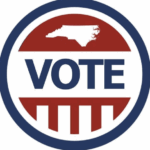 North Carolina Rulemaking: More voters will have to cast provisional ballots in state and local elections after an N.C. Board of Elections vote this week. The Board is asking people who do not have a driver’s license number or partial Social Security number connected to their name to supply one of those identifiers. For certain voters, those identifying numbers may not be attached to their names as a result of a mismatch. If a name is misspelled, if voters change their names, if the numbers on a birth date are transposed, or one record has a middle name and another record doesn’t, for example, the numerical identifiers aren’t added to the voter registration file. The three Republicans on the five-member Board voted to approve the plan that will require those voters who don’t have those identifiers connected to their names to cast provisional ballots and show an acceptable picture ID or document showing their residence when they vote. Additionally, Republicans on the Board flexed their new majority by rejecting plans for Sunday voting in Davidson and Union counties during early voting this year. Democrats on the Board wanted to allow Sunday voting in those counties. The State Board put off discussion of whether it will feed voter information into the federal SAVE database that agencies use to verify immigration status and citizenship. The Department of Homeland Security asked the Board if it wanted to be part of a “soft launch” that allows states to submit voter information, including the last four digits of their Social Security numbers, to check immigration and citizenship status.
North Carolina Rulemaking: More voters will have to cast provisional ballots in state and local elections after an N.C. Board of Elections vote this week. The Board is asking people who do not have a driver’s license number or partial Social Security number connected to their name to supply one of those identifiers. For certain voters, those identifying numbers may not be attached to their names as a result of a mismatch. If a name is misspelled, if voters change their names, if the numbers on a birth date are transposed, or one record has a middle name and another record doesn’t, for example, the numerical identifiers aren’t added to the voter registration file. The three Republicans on the five-member Board voted to approve the plan that will require those voters who don’t have those identifiers connected to their names to cast provisional ballots and show an acceptable picture ID or document showing their residence when they vote. Additionally, Republicans on the Board flexed their new majority by rejecting plans for Sunday voting in Davidson and Union counties during early voting this year. Democrats on the Board wanted to allow Sunday voting in those counties. The State Board put off discussion of whether it will feed voter information into the federal SAVE database that agencies use to verify immigration status and citizenship. The Department of Homeland Security asked the Board if it wanted to be part of a “soft launch” that allows states to submit voter information, including the last four digits of their Social Security numbers, to check immigration and citizenship status.
 Texas: According to Votebeat, Gov. Greg Abbott called on lawmakers to prohibit same-day voter registration, in an apparent attempt to reverse a measure passed earlier this year that relaxed rules for voters who made last-minute updates to their addresses. Texas does not allow same-day registration for new applicants, but under the legislation passed this year with bipartisan support, Senate Bill 2217, voters could update their addresses and immediately cast a ballot based on their new precinct or district, as long as the move was within the county. That law was scheduled to go into effect Sept. 1. Shortly after Abbott’s announcement, state Rep. Briscoe Cain, a Republican from East Texas, announced on social media that he had filed a bill that would effectively prevent that measure from going into effect. Cain’s bill would maintain the status quo, in which voters can update their address at the polls, but have to wait 30 days for that change to take effect. Their ballot would include races tied to their old address, the one on file in the state voter registration system before the update.
Texas: According to Votebeat, Gov. Greg Abbott called on lawmakers to prohibit same-day voter registration, in an apparent attempt to reverse a measure passed earlier this year that relaxed rules for voters who made last-minute updates to their addresses. Texas does not allow same-day registration for new applicants, but under the legislation passed this year with bipartisan support, Senate Bill 2217, voters could update their addresses and immediately cast a ballot based on their new precinct or district, as long as the move was within the county. That law was scheduled to go into effect Sept. 1. Shortly after Abbott’s announcement, state Rep. Briscoe Cain, a Republican from East Texas, announced on social media that he had filed a bill that would effectively prevent that measure from going into effect. Cain’s bill would maintain the status quo, in which voters can update their address at the polls, but have to wait 30 days for that change to take effect. Their ballot would include races tied to their old address, the one on file in the state voter registration system before the update.
The House sent a measure to Abbott’s desk that would let the attorney general’s office independently prosecute election-related crimes, years after the state’s highest criminal court ruled the office could not do so without an invitation from local prosecutors. Members of the Legislature’s lower chamber voted 85–54 to pass Senate Bill 12, from Sen. Bryan Hughes, R-Mineola, and Republican Rep. Matt Shaheen of Plano, after a roughly hourlong debate that centered on the constitutionality of the measure. Four years ago, the all-GOP Court of Criminal Appeals ruled the attorney general’s office could not unilaterally prosecute election crimes — such as voter fraud — due to the separation of powers clause of the Texas Constitution. Democratic lawmakers who opposed SB 12 grilled Shaheen about the bill’s constitutionality, considering the ruling. Shaheen insisted that the bill would “fix” the ruling from the state’s highest court for criminal matters.
The Republican-led House approved a new congressional map crafted to hand five additional U.S. House seats to the GOP, over fierce opposition from Democrats, who cast the plan as a racially discriminatory attempt by President Donald Trump to stack the deck in next year’s midterm election. The House adopted the map, 88 to 52, along party lines. A Senate panel advanced a similar map earlier in the week.Republicans have said the new districts were drawn purely to maximize their partisan advantage, arguing that the GOP’s margins of victory in 2024 supported new lines that entrenched their hold on power. They have also framed the effort as a response to Democratic gerrymandering elsewhere. Rep. Todd Hunter, R-Corpus Christi, the map’s sponsor, emphasized in laying out House Bill 4 that Republicans were legally permitted to pursue redistricting in the middle of the decade and to maximize partisan gain.
Legal Updates
 Alabama: U.S. District Judge Anna Manasco ordered lawmakers to draw new state Senate districts after ruling the state violated the Voting Rights Act by diluting the influence of Black voters around the capital city. Manasco blocked the state from using the current map in the 2026 elections and said a new map must be put in place that creates a new district in Montgomery where Black voters “comprise a voting-age majority or something quite close to it.” As for the Alabama State Senate seats in question, Manasco ruled, “The appropriate remedy is a redistricting plan that includes either an additional majority-Black Senate district in the Montgomery area, or an additional district there in which Black voters otherwise have an opportunity to elect a senator of their choice,” Manasco wrote in the 261-page ruling. The ruling said the court will redraw the districts if the state does not do so in time for the 2026 elections.
Alabama: U.S. District Judge Anna Manasco ordered lawmakers to draw new state Senate districts after ruling the state violated the Voting Rights Act by diluting the influence of Black voters around the capital city. Manasco blocked the state from using the current map in the 2026 elections and said a new map must be put in place that creates a new district in Montgomery where Black voters “comprise a voting-age majority or something quite close to it.” As for the Alabama State Senate seats in question, Manasco ruled, “The appropriate remedy is a redistricting plan that includes either an additional majority-Black Senate district in the Montgomery area, or an additional district there in which Black voters otherwise have an opportunity to elect a senator of their choice,” Manasco wrote in the 261-page ruling. The ruling said the court will redraw the districts if the state does not do so in time for the 2026 elections.
 Orange County, California: Orange County supervisors narrowly shot down calls from their colleagues to settle a lawsuit from the U.S. Department of Justice and order the county’s top elections official to hand over 17 people’s voting data to prosecutors amid a probe of alleged noncitizen voting. The request comes amid concerns that the 17 people in question – all of whom county election officials say have been purged from voter rolls – could’ve improperly voted after their names showed up on rolls, despite not being eligible to vote. The lawsuit came after federal prosecutors rejected the county’s proposal to hand over redacted files that included the voters’ names and home addresses, with County Counsel Leon Page arguing it would be illegal to hand over without a court order. But Supervisors Don Wagner and Janet Nguyen – the two Republicans on the board – argued they should not block the request by the federal government, and that it makes people raise questions. But the three Democrats on the board – Chairman Doug Chaffee, Supervisor Katrina Foley and Supervisor Vicente Sarmiento – pushed back on their colleagues, voting against their colleagues’ proposal to settle the lawsuit. Supervisors Vicente Sarmiento and Doug Chaffee also voted against ending the lawsuit, with Chaffee raising concerns about violating the 17 individuals’ right to privacy.
Orange County, California: Orange County supervisors narrowly shot down calls from their colleagues to settle a lawsuit from the U.S. Department of Justice and order the county’s top elections official to hand over 17 people’s voting data to prosecutors amid a probe of alleged noncitizen voting. The request comes amid concerns that the 17 people in question – all of whom county election officials say have been purged from voter rolls – could’ve improperly voted after their names showed up on rolls, despite not being eligible to vote. The lawsuit came after federal prosecutors rejected the county’s proposal to hand over redacted files that included the voters’ names and home addresses, with County Counsel Leon Page arguing it would be illegal to hand over without a court order. But Supervisors Don Wagner and Janet Nguyen – the two Republicans on the board – argued they should not block the request by the federal government, and that it makes people raise questions. But the three Democrats on the board – Chairman Doug Chaffee, Supervisor Katrina Foley and Supervisor Vicente Sarmiento – pushed back on their colleagues, voting against their colleagues’ proposal to settle the lawsuit. Supervisors Vicente Sarmiento and Doug Chaffee also voted against ending the lawsuit, with Chaffee raising concerns about violating the 17 individuals’ right to privacy.
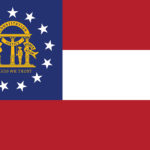 Georgia: Senior Superior Court Judge David Emerson ruled this week that the Fulton County Board of Commissioners will be fined $10,000 per day until the panel agrees to approve Julie Adams and Jason Frazier’s appointments to the elections board. “The court finds beyond a reasonable doubt that the Board of Commissioners has failed to comply with this court’s order,” Emerson wrote in his ruling. The judge declined to hold any of the commissioners in criminal contempt of court, but ordered that the board of commissioners must pay the Fulton County Republican Party’s legal fees in the case. While normally the fees would be paid to the county government, Emerson said the fines would instead be paid to the superior court clerk and transferred to the state of Georgia. The Democratic-led board of commissioners voted 5-2 to reject the nominations, citing concerns about Adams and Frazier’s past actions and arguing that they were not qualified for the position. In June, the Fulton County Republican Party filed a lawsuit in Fulton County Superior Court, claiming that commissioners do not have the power to reject nominations from political parties. In an Aug. 3 ruling, Emerson sided with the Fulton County Republican Party, ordering the commissioners to approve the nominations. “There is nothing in the statute to support the BOC theory that the county commissioners can veto the chairperson’s nominees other than for failure of the nominee to meet the two qualifications and one restriction,” Emerson wrote.
Georgia: Senior Superior Court Judge David Emerson ruled this week that the Fulton County Board of Commissioners will be fined $10,000 per day until the panel agrees to approve Julie Adams and Jason Frazier’s appointments to the elections board. “The court finds beyond a reasonable doubt that the Board of Commissioners has failed to comply with this court’s order,” Emerson wrote in his ruling. The judge declined to hold any of the commissioners in criminal contempt of court, but ordered that the board of commissioners must pay the Fulton County Republican Party’s legal fees in the case. While normally the fees would be paid to the county government, Emerson said the fines would instead be paid to the superior court clerk and transferred to the state of Georgia. The Democratic-led board of commissioners voted 5-2 to reject the nominations, citing concerns about Adams and Frazier’s past actions and arguing that they were not qualified for the position. In June, the Fulton County Republican Party filed a lawsuit in Fulton County Superior Court, claiming that commissioners do not have the power to reject nominations from political parties. In an Aug. 3 ruling, Emerson sided with the Fulton County Republican Party, ordering the commissioners to approve the nominations. “There is nothing in the statute to support the BOC theory that the county commissioners can veto the chairperson’s nominees other than for failure of the nominee to meet the two qualifications and one restriction,” Emerson wrote.
 Louisiana: Louisiana is calling on the U.S. Supreme Court to overturn a key provision of the Voting Rights Act in a case that could toss out the state’s congressional boundaries and limit the extent race can be considered in the redistricting process nationwide. The state filed a brief Wednesday in response to the high court’s request that parties to Louisiana v. Callais, a lawsuit that non-Black voters filed over a second majority Black district for the state in the U.S. House, address whether the legislature’s creation of that district violated the 14th 15th amendments to the U.S. Constitution. The 14th Amendment, in part, covers representation in Congress, and the 15th Amendment prevents citizens from being denied the right to vote based on their race. If the justices determine Louisiana violated the Constitution, it could undermine the Voting Rights Act. The legislation was approved in 1965 to bolster protections granted in the 14th and 15th amendments. It has been amended five times since then to strengthen its provisions, though voting rights advocates note federal court rulings over the past decade have chipped away at the law. The state drew a second majority Black district in 2024 in response to a federal judge ruling the state violated the Voting Rights Act with its 2022 map, which kept a single Black-majority district among Louisiana’s six U.S. House seats. Attorney General Liz Murrill, who previously defended the second Black district,now argues that adding another Black district was unconstitutional.
Louisiana: Louisiana is calling on the U.S. Supreme Court to overturn a key provision of the Voting Rights Act in a case that could toss out the state’s congressional boundaries and limit the extent race can be considered in the redistricting process nationwide. The state filed a brief Wednesday in response to the high court’s request that parties to Louisiana v. Callais, a lawsuit that non-Black voters filed over a second majority Black district for the state in the U.S. House, address whether the legislature’s creation of that district violated the 14th 15th amendments to the U.S. Constitution. The 14th Amendment, in part, covers representation in Congress, and the 15th Amendment prevents citizens from being denied the right to vote based on their race. If the justices determine Louisiana violated the Constitution, it could undermine the Voting Rights Act. The legislation was approved in 1965 to bolster protections granted in the 14th and 15th amendments. It has been amended five times since then to strengthen its provisions, though voting rights advocates note federal court rulings over the past decade have chipped away at the law. The state drew a second majority Black district in 2024 in response to a federal judge ruling the state violated the Voting Rights Act with its 2022 map, which kept a single Black-majority district among Louisiana’s six U.S. House seats. Attorney General Liz Murrill, who previously defended the second Black district,now argues that adding another Black district was unconstitutional.
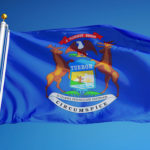 Michigan: Five out of seven double voting criminal cases in the August 2024 primary in St. Clair Shores have been dismissed, but the Michigan Attorney General’s Office is appealing the rulings to a higher court, including the Michigan Court of Appeals in four of the cases. The most recent dismissal came Aug. 6 in the case against Douglas Kempkens Jr., a voter who was charged with one count each of voting absentee and in-person and offering to vote more than once. Macomb County Circuit Judge Joseph Toia dismissed and closed the case. A claim of appeal was filed this week with the state appellate court, according to a check Aug. 21 of online court records. According to the Detroit Free Press, AG Spokesman Danny Wimmer indicated in an Aug. 15 email: “Maintaining free and fair elections is predicated on the premise that citizens can cast their ballot once and only once per election. To allow some people to vote twice makes a mockery of our electoral systems.” He indicated the office was evaluating its appellate options after recent dismissals. The voters were accused of committing election fraud when they sent in an absentee ballot and still voted in person at the polls, Attorney General Dana Nessel said at a news conference announcing the charges in October. The election workers were accused of knowing of the voters’ absentee ballots — an electronic voter information tracking system informed them — and letting them vote anyway. The AG’s Office identified the election workers as assistant clerks, but St. Clair Shores Mayor Kip Walby previously told the Free Press they were seasonal workers, not assistant clerks.
Michigan: Five out of seven double voting criminal cases in the August 2024 primary in St. Clair Shores have been dismissed, but the Michigan Attorney General’s Office is appealing the rulings to a higher court, including the Michigan Court of Appeals in four of the cases. The most recent dismissal came Aug. 6 in the case against Douglas Kempkens Jr., a voter who was charged with one count each of voting absentee and in-person and offering to vote more than once. Macomb County Circuit Judge Joseph Toia dismissed and closed the case. A claim of appeal was filed this week with the state appellate court, according to a check Aug. 21 of online court records. According to the Detroit Free Press, AG Spokesman Danny Wimmer indicated in an Aug. 15 email: “Maintaining free and fair elections is predicated on the premise that citizens can cast their ballot once and only once per election. To allow some people to vote twice makes a mockery of our electoral systems.” He indicated the office was evaluating its appellate options after recent dismissals. The voters were accused of committing election fraud when they sent in an absentee ballot and still voted in person at the polls, Attorney General Dana Nessel said at a news conference announcing the charges in October. The election workers were accused of knowing of the voters’ absentee ballots — an electronic voter information tracking system informed them — and letting them vote anyway. The AG’s Office identified the election workers as assistant clerks, but St. Clair Shores Mayor Kip Walby previously told the Free Press they were seasonal workers, not assistant clerks.
 New Hampshire: A trio of visually impaired residents filed a lawsuit against the state last week after Gov. Kelly Ayotte signed a bill into law that they say makes “absentee voting even harder” and burdensome for voters. SB 287 requires anyone seeking to vote by absentee ballot to show photo identification in person or have their absentee ballot application form notarized. While the law was meant to prevent voter fraud, the burden of the law will fall on the most vulnerable, the lawsuit claims. The law requires voters to show such proof for every local, primary and general election in order to receive an absentee ballot. Plaintiffs Adele Robertson of Exeter and Regina Wilson of Brentwood are visually impaired; Daniel Frye of Concord is blind. All are regular absentee voters. Ayotte signed the bill into law along with 42 other bills on Aug. 1 with no public statement. The defendants are listed as Secretary of State David Scanlan and Attorney General John Formella. No response had been filed in court as of press time. The plaintiffs seek to have a judge issue an injunction to halt the new absentee ballot requirements.
New Hampshire: A trio of visually impaired residents filed a lawsuit against the state last week after Gov. Kelly Ayotte signed a bill into law that they say makes “absentee voting even harder” and burdensome for voters. SB 287 requires anyone seeking to vote by absentee ballot to show photo identification in person or have their absentee ballot application form notarized. While the law was meant to prevent voter fraud, the burden of the law will fall on the most vulnerable, the lawsuit claims. The law requires voters to show such proof for every local, primary and general election in order to receive an absentee ballot. Plaintiffs Adele Robertson of Exeter and Regina Wilson of Brentwood are visually impaired; Daniel Frye of Concord is blind. All are regular absentee voters. Ayotte signed the bill into law along with 42 other bills on Aug. 1 with no public statement. The defendants are listed as Secretary of State David Scanlan and Attorney General John Formella. No response had been filed in court as of press time. The plaintiffs seek to have a judge issue an injunction to halt the new absentee ballot requirements.
 Ohio: Voting rights advocates are fighting a new law that requires Ohioans to prove citizenship at the Bureau of Motor Vehicles if they want to register to vote. State lawmakers added the rule to the two-year transportation budget − passed in March − that allocates funding for airports, roads and bridges. Under the budget change, registrars can only offer voter registration to people who have proof of U.S. citizenship or previously provided documents to the BMV. Ohio already requires proof of legal presence to get a driver’s license or state ID and puts “noncitizen” labels on the IDs of those without citizenship. That means people in the BMV database confirmed to be U.S. citizens wouldn’t need to do anything more. But the lawsuit, filed Aug. 22 in the U.S. District Court’s Northern Ohio District, contends it will make registration difficult for new Ohio residents, older Ohioans and women who change their name for a marriage or divorce. The suit also noted that Ohioans who register online or by mail need only attest to their citizenship in a sworn statement. “There is no evidence in Ohio (or any other state) that the attestation requirement has been insufficient in preventing noncitizens from voting,” the complaint stated. “The substantial criminal and immigration consequences that a noncitizen would incur from voting have long effectively prevented noncitizens from voting in U.S. elections.” The suit was filed by Elias Law Group on behalf of the Ohio Alliance for Retired Americans and Red Wine and Blue, an advocacy group led by suburban women.
Ohio: Voting rights advocates are fighting a new law that requires Ohioans to prove citizenship at the Bureau of Motor Vehicles if they want to register to vote. State lawmakers added the rule to the two-year transportation budget − passed in March − that allocates funding for airports, roads and bridges. Under the budget change, registrars can only offer voter registration to people who have proof of U.S. citizenship or previously provided documents to the BMV. Ohio already requires proof of legal presence to get a driver’s license or state ID and puts “noncitizen” labels on the IDs of those without citizenship. That means people in the BMV database confirmed to be U.S. citizens wouldn’t need to do anything more. But the lawsuit, filed Aug. 22 in the U.S. District Court’s Northern Ohio District, contends it will make registration difficult for new Ohio residents, older Ohioans and women who change their name for a marriage or divorce. The suit also noted that Ohioans who register online or by mail need only attest to their citizenship in a sworn statement. “There is no evidence in Ohio (or any other state) that the attestation requirement has been insufficient in preventing noncitizens from voting,” the complaint stated. “The substantial criminal and immigration consequences that a noncitizen would incur from voting have long effectively prevented noncitizens from voting in U.S. elections.” The suit was filed by Elias Law Group on behalf of the Ohio Alliance for Retired Americans and Red Wine and Blue, an advocacy group led by suburban women.
 Pennsylvania: A three-judge panel of the 3rd U.S. Circuit Court of Appeals ruled this week that It is unconstitutional for Pennsylvania counties to reject mail ballots on the grounds that the envelopes are undated or misdated. The judges found the dating requirement to be a minimal burden on voters, but said there was not a sufficient state interest to justify enforcing it. “Weighing the burden that practice imposes on Pennsylvanians’ constitutional right to vote against the State’s interest in the practice, the balance of the scales leads us to hold that it does not comply with our Constitution,” the judges concluded unanimously, upholding a decision earlier this year from a federal district court judge. Act 77, the 2019 law that created no-excuse mail voting in Pennsylvania, says a person must sign and date the mail ballot return envelope for their vote to be counted, but election officials have said this date is not used for determining whether the ballot was received by Election Day. Since then, some Pennsylvania counties have rejected thousands of ballots because the envelopes lacked a proper date, and counties have had varying policies about whether to notify voters and give them a chance to correct the error. The validity of the dating requirement has been disputed for years, with state and federal courts going back and forth.
Pennsylvania: A three-judge panel of the 3rd U.S. Circuit Court of Appeals ruled this week that It is unconstitutional for Pennsylvania counties to reject mail ballots on the grounds that the envelopes are undated or misdated. The judges found the dating requirement to be a minimal burden on voters, but said there was not a sufficient state interest to justify enforcing it. “Weighing the burden that practice imposes on Pennsylvanians’ constitutional right to vote against the State’s interest in the practice, the balance of the scales leads us to hold that it does not comply with our Constitution,” the judges concluded unanimously, upholding a decision earlier this year from a federal district court judge. Act 77, the 2019 law that created no-excuse mail voting in Pennsylvania, says a person must sign and date the mail ballot return envelope for their vote to be counted, but election officials have said this date is not used for determining whether the ballot was received by Election Day. Since then, some Pennsylvania counties have rejected thousands of ballots because the envelopes lacked a proper date, and counties have had varying policies about whether to notify voters and give them a chance to correct the error. The validity of the dating requirement has been disputed for years, with state and federal courts going back and forth.
 Texas: According to the Texas Tribune, hours after the Senate approved a new congressional map early Saturday morning that more heavily favors Republicans — legislation Gov. Greg Abbott plans to “swiftly” sign into law — a lawsuit against the governor was filed, alleging that the redrawn districts are racially discriminatory. The 67-page complaint against Abbott and Secretary of State Jane Nelson supplements legal action filed by LULAC in 2021 challenging the state’s original maps and argues that redrawing districts mid-decade is unconstitutional. Redistricting usually happens at the start of the decade after U.S. census data comes out. The complaint argues that because the new map was drawn based on the same data used for the initial map passed by the Legislature in 2021, the measure was a violation of the U.S. Constitution’s Equal Protection Clause. “Even if racial and partisan considerations are an unavoidable part of redistricting, there is no need for legislatures to take those considerations into account a second time in a single decade,” the complaint reads. The complaint, which is expected to be followed by others targeting House Bill 4, was filed by two law firms on behalf of 13 Texas residents collectively called “the Gonzales plaintiffs.” The bulk of their argument is that the new congressional map “dismantles majority-minority districts” by prioritizing Republican representation in Congress.
Texas: According to the Texas Tribune, hours after the Senate approved a new congressional map early Saturday morning that more heavily favors Republicans — legislation Gov. Greg Abbott plans to “swiftly” sign into law — a lawsuit against the governor was filed, alleging that the redrawn districts are racially discriminatory. The 67-page complaint against Abbott and Secretary of State Jane Nelson supplements legal action filed by LULAC in 2021 challenging the state’s original maps and argues that redrawing districts mid-decade is unconstitutional. Redistricting usually happens at the start of the decade after U.S. census data comes out. The complaint argues that because the new map was drawn based on the same data used for the initial map passed by the Legislature in 2021, the measure was a violation of the U.S. Constitution’s Equal Protection Clause. “Even if racial and partisan considerations are an unavoidable part of redistricting, there is no need for legislatures to take those considerations into account a second time in a single decade,” the complaint reads. The complaint, which is expected to be followed by others targeting House Bill 4, was filed by two law firms on behalf of 13 Texas residents collectively called “the Gonzales plaintiffs.” The bulk of their argument is that the new congressional map “dismantles majority-minority districts” by prioritizing Republican representation in Congress.
 Utah: District Court Judge Dianna Gibson has ruled that the Legislature will need to rapidly redraw the state’s congressional boundaries. Gibson ruled that the Republican-controlled body circumvented safeguards put in place by voters to ensure districts aren’t drawn to favor any party. The current map, adopted in 2021, divides Salt Lake County — Utah’s population center and a Democratic stronghold — among the state’s four congressional districts, all of which have since elected Republicans by wide margins. Gibson made few judgments on the content of the map but declared it unlawful because lawmakers had weakened and ignored an independent commission established by voters to prevent partisan gerrymandering. “The nature of the violation lies in the Legislature’s refusal to respect the people’s exercise of their constitutional lawmaking power and to honor the people’s right to reform their government,” Gibson said in the ruling. New maps will need to be drawn quickly, before candidates start filing in early January for the 2026 midterm elections. The ruling gives lawmakers a deadline of Sept. 24 and allows voting rights groups involved in the legal challenge to submit alternate proposals to the court.
Utah: District Court Judge Dianna Gibson has ruled that the Legislature will need to rapidly redraw the state’s congressional boundaries. Gibson ruled that the Republican-controlled body circumvented safeguards put in place by voters to ensure districts aren’t drawn to favor any party. The current map, adopted in 2021, divides Salt Lake County — Utah’s population center and a Democratic stronghold — among the state’s four congressional districts, all of which have since elected Republicans by wide margins. Gibson made few judgments on the content of the map but declared it unlawful because lawmakers had weakened and ignored an independent commission established by voters to prevent partisan gerrymandering. “The nature of the violation lies in the Legislature’s refusal to respect the people’s exercise of their constitutional lawmaking power and to honor the people’s right to reform their government,” Gibson said in the ruling. New maps will need to be drawn quickly, before candidates start filing in early January for the 2026 midterm elections. The ruling gives lawmakers a deadline of Sept. 24 and allows voting rights groups involved in the legal challenge to submit alternate proposals to the court.
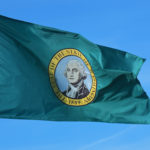 Washington: Timothy Hazelo of Island County, avoided a jail sentence after being convicted of a felony for an incident where he refused to wear a mask in an election center. In July, a jury found Hazelo guilty of unauthorized access to a voting center, which is a felony. Hazelo was also found guilty of criminal trespass, a gross misdemeanor. The criminal charges stem from an incident in November 2024, where Hazelo was removed from the Island County Election Office after he refused to wear a mask while observing ballot counting. Though Island County Prosecuting Attorney Greg Banks requested Hazelo be sentenced to seven days in jail, Hazelo was ultimately sentenced to probation and required to complete 40 hours of community service with a non-profit and non-political entity. No contact orders were also issued, prohibiting Hazelo from contacting the county auditor or elections supervisor. He can only contact them if he needs to file paperwork to run for office.
Washington: Timothy Hazelo of Island County, avoided a jail sentence after being convicted of a felony for an incident where he refused to wear a mask in an election center. In July, a jury found Hazelo guilty of unauthorized access to a voting center, which is a felony. Hazelo was also found guilty of criminal trespass, a gross misdemeanor. The criminal charges stem from an incident in November 2024, where Hazelo was removed from the Island County Election Office after he refused to wear a mask while observing ballot counting. Though Island County Prosecuting Attorney Greg Banks requested Hazelo be sentenced to seven days in jail, Hazelo was ultimately sentenced to probation and required to complete 40 hours of community service with a non-profit and non-political entity. No contact orders were also issued, prohibiting Hazelo from contacting the county auditor or elections supervisor. He can only contact them if he needs to file paperwork to run for office.
 Wisconsin: Marcey Patterson, 45, the Milwaukee Police Department’s former community relations engagement and recruitment director has been criminally charged with election fraud. Patterson has been living outside of the city of Milwaukee but voting in Milwaukee elections and using her 80-year-old mother’s Milwaukee address to receive increased pay, according to a criminal complaint filed Aug. 25 in Milwaukee County Circuit Court. Between March 2018 and April 2025, Patterson voted in 12 city of Milwaukee elections while living outside the city, according to the complaint. In June 2024, she submitted a voter registration application to the Milwaukee Election Commission listing her address on North 40th Street. She was actually living in Brown Deer at the time, according to prosecutors. Patterson was charged with one count of election fraud — voting by disqualified person, which is a Class I felony and punishable by not more than $10,000, or imprisoned up to 3½ years, or both. She resigned on July 21 from her job with the police department.
Wisconsin: Marcey Patterson, 45, the Milwaukee Police Department’s former community relations engagement and recruitment director has been criminally charged with election fraud. Patterson has been living outside of the city of Milwaukee but voting in Milwaukee elections and using her 80-year-old mother’s Milwaukee address to receive increased pay, according to a criminal complaint filed Aug. 25 in Milwaukee County Circuit Court. Between March 2018 and April 2025, Patterson voted in 12 city of Milwaukee elections while living outside the city, according to the complaint. In June 2024, she submitted a voter registration application to the Milwaukee Election Commission listing her address on North 40th Street. She was actually living in Brown Deer at the time, according to prosecutors. Patterson was charged with one count of election fraud — voting by disqualified person, which is a Class I felony and punishable by not more than $10,000, or imprisoned up to 3½ years, or both. She resigned on July 21 from her job with the police department.
Opinions This Week
National Opinions: Vote by mail, II, III, IV, V, VI, VII, VII | Voting Rights Act | Election system | Presidential power | States’ rights | Voting rules
Alaska: “Traditional” elections
Arizona; Vote by mail
California: Election funding
Colorado: Trust in elections | Federalizing elections
Florida: Vote by mail | SAVE Act
Hawai’i: Voting rights
Idaho: Vote by mail
Indiana: Vote centers, II
Kansas: Vote by mail
Kentucky: Vote by mail
Maine: Ballot measures
Maryland: Ranked choice voting | Vote by mail
Massachusetts: Vote by mail
Minnesota: Vote by mail
Nebraska: Free and fair elections
Nevada: Vote by mail, II
New Hampshire: Vote by mail
New Mexico: Election reform
North Carolina: Vote by mail
Ohio: Secretary of state | Vote by mail; Early voting;
Oregon: Election administration
Pennsylvania: Election system | Justice Department request
South Carolina: Vote by mail
South Dakota: Democracy
Tennessee: The Big Lie
Texas: Tarrant County, II
Utah: Vote by mail
Vermont: Voter ID
Virginia: Vote by mail | Election system
Washington: Vote by mail
Wyoming: Election integrity
Upcoming Events
The Next Phase of the Fight: Challenges to democracy intensified over the summer. The National Guard deployed in California. The Supreme Court ruled on presidential power using the shadow docket. In Texas, an egregious gerrymander has set off a partisan war nationally. Now the fall will mark the next phase in the fight for the Constitution. Will the rule of law hold? How will the 2026 election unfold? Join us on Thursday, September 4, for a virtual event highlighting some of the biggest news stories of the past three months. Brennan Center experts will break down what’s happened and what will come next in the fight to uphold democratic values. When: September 4. Where: Online.
Fall 2025 Association of Arkansas Counties Circuit Clerks (AACC) Meeting: When: September 9-13. Where: Logan.
Maine Town & City Clerks Networking Day & Annual Meeting: When: September 10. Where: Brewer.
Wyoming Association of County Officers Conference: When: September 23-25. Where: Rock Springs.
Protecting the Election: AI and Governance Conference at WashU: Join us for this two-day in-person research and practitioner conference at WashU on October 16-17, 2025, to discuss research regarding AI and governance and how this applies to U.S. elections. Research topics include how chatbots can be used to engage with voters, how social media influences voters, what the electorate knew (or did not know) about the candidates and issues during recent elections, misinformation in elections, rhetoric about election integrity, and AI strategies for the administration of elections. We will also hear from practitioners during the conferences about their experiences with and needs for AI in recent elections and their intentions for future use of AI in elections. When: Oct. 16-17. Where: St. Louis.
NDACo Annual Conference [North Dakota]: When: October 26-28.
57th Annual Tennessee County Officials Association (COAT) Conference: When: November 16-19. Where: Pigeon Forge.
2025 New England Association of City and Town Clerks Conference: When: November 19-21. Where: Bangor, Maine.
Job Postings This Week
electionlineWeekly publishes election administration job postings each week as a free service to our readers. To have your job listed in the newsletter, please send a copy of the job description, including a web link to mmoretti@electionline.org. Job postings must be received by 5pm on Wednesday in order to appear in the Thursday newsletter. Listings will run for three weeks or till the deadline listed in the posting.
Administrative Specialist, Leon County, Florida– The Administrative Specialist provides a wide range of administrative support, coordination, and project management to the Leon County Supervisor of Elections Office (SOE). This position works under the supervision of the Human Resources Coordinator to support human resources, accounting, training, scheduling, clerical, and compliance monitoring efforts for the SOE. The office is home to approximately twenty-five, year-round staff members supplemented during election years by dozens of temporary, seasonal staff. The position requires great attention to detail, outstanding communication skills, comfort working with a wide variety of people, and proficiency with data and spreadsheets. Application: For the complete job listing and to apply, click here.
Administrative Specialist, King County, Washington – The Department of Elections is searching for energetic and resourceful professionals who like to “get stuff done”. The Administrative Specialist II positions in the Voter Services Department combines an exciting, fast-paced environment with the opportunity to cultivate talents and apply a variety of skills. The ideal candidate will have a desire to help ensure the democratic process through public service. They will thrive in an innovative environment and will not hesitate to roll up both sleeves, work hard, have fun, and get the job done. Job Duties: Provide excellent customer service to internal and external customers in person, via telephone, and via e-mail by processing voter registrations, communicating election program information and explaining election procedures, guidelines and regulations. Provide backup support for translation and/or interpreting and proof election-related documents and web materials from English to Chinese (traditional text). This includes but is not limited to voter registration information, letters, and other correspondence, notice of elections, ballot titles, voters’ pamphlet information, candidate statements, ballot measures, etc. to limited English speaking (LES) voters. Perform production-level computer work which includes accurate data entry, retrieving and editing records. Organize and coordinate work activities and assist with providing training and one-on-one instruction to diverse staff. Set up records and file documents in both electronic and paper formats. Review documents for proper format, accuracy, completion, eligibility, and other legal guidelines. Audit work group data entry activities to ensure performance quality and efficiency of work. Utilize spreadsheets, word documents and reports to track and document performance data. Research and resolve questions from staff, citizens and stakeholders. Document and improve work processes, procedures and instructions. Salary: $27.03 – $34.40 Hourly. Application: For the complete job listing and to apply, click here.
Assistant Registrar of Voters, Santa Clara County, California– Under general direction, the Assistant Registrar of Voters supports the planning, organization, and oversight of the County Registrar of Voters Department. This executive leadership position reports directly to the Registrar of Voters and plays a key role in administering and managing departmental operations. The department is responsible for voter registration, the conduct of elections, and related electoral services. The Assistant Registrar of Voters helps ensure that all activities are carried out efficiently, accurately, and in compliance with applicable laws and regulations. This position may assume the responsibility of the Department in the absence of the Registrar of Voters. Salary: $194,184.52 – $249,180.63. Application: For the complete job listing and to apply, click here.
Community Engagement Coordinator, North Charleston, South Carolina– Partner with the Community Engagement Manager to identify and expand non-partisan community relationships. Cultivate connections with local businesses and civic organizations to boost visibility and support. Solicit and analyze community feedback to enhance outreach strategies. Create brochures, flyers, presentations, and digital content to educate the public about elections and voting procedures.Collaborate with the Marketing and Communications Manager to maintain clear, consistent, and timely messaging across platforms. Manage and update the outreach section of the agency’s website. Deliver presentations and training during outreach events. Plan and coordinate mid-scale public events such as National Voter Registration Day and poll worker appreciation initiatives. Represent BVRE at outreach events, tabling opportunities, and community meetings. Track outreach activity and report on engagement metrics and outcomes. Support special projects including the “I Voted” sticker contest, Adopt a Polling Location, and poll worker recruitment. Research best practices to enhance and expand outreach programming. Assist in maintaining a centralized repository of outreach materials and resources. Salary: $50,440 – $66,060. Application: For the complete job listing and to apply, click here.
Constituent Services Officer, Maricopa County, Arizona– If you are a creative and influential communications professional who thrives in building relationships and crafting public relations, consider applying to become our Constituent Services Officer! In this vital role, you’ll be the voice of our department, developing and coordinating public relations, community education, and information programs. You will advise and assist management on public relations strategies and lead the way in crafting communications that inform and engage our constituents—the people we serve. Your work will involve building and maintaining relationships with community groups and county officials on behalf of the Director of Critical Communications. By doing this, you’ll ensure our department’s public outreach goals and the needs of our community are met. You’ll also be the authority on all written material for the department. From training materials for staff to communications with the public, your words will matter. You will also oversee key programs that directly impact the community, including the Deputy Registrar (DR) Program, the Junior Deputy Registrar Program, the Senior Living DR Outreach, serving as the STAR liaison, and other programs as necessary. If you’re passionate about making a difference and have a talent for communication, this is your chance to lead our efforts in serving the public. Deadline: August 29. Salary: $62,000 – $103,750 annually. Application: For the complete job listing and to apply, click here.
Customer Success Manager, ElectSure– ElectSure, a leading provider of training and technology solutions for election administration offices, is seeking a proactive and empathetic Customer Success Manager (CSM) to lead client satisfaction and success across our service lifecycle. This is a high-impact role designed for a results-oriented professional who thrives in a fast-paced, startup environment and is passionate about delivering excellence to public-sector clients. Application: For the complete job listing and to apply, click here.
Digital Recording Lead, Maricopa County, Arizona– If you take pride in precision, thrive in structured settings, and enjoy being the go-to resource for coordination and communication, this is your next step! The Maricopa County Recorder’s office is responsible for recording all documents required by law to be made public record, including documents related to real estate transactions. Since August 1999, we have accepted documents electronically, and currently, over 83% of all documents are submitted this way. We continue to remain at the forefront of e-government. Data, including our first recording on June 5, 1871, can be located on our website. We are proud of the many awards and recognitions we have received and that we are considered by many to be the premier recording office in the country. Salary: $20.50 – $33.00 hourly. Deadline: August 30. Application: For the complete job listing and to apply, click here.
Election Analyst, Charleston County, South Carolina– Are you a detail-oriented professional with a passion for public service and a knack for technology? Join us as an Election Analyst and play a vital role in ensuring the security, efficiency, and accuracy of elections in our community. At the Board of Voter Registration and Elections, we are not just managing elections—we’re shaping the foundation of democracy. As an award-winning office known for our commitment to excellence and innovation, we invite you to be part of a team that is redefining what it means to serve the public. Our mission is to daily serve the Charleston County voting constituency with Vigilance, Objectivity, and Transparency in a manner that promotes due diligence Excellence in all aspects of Elections Management. Why Join Us: 1. Trusted Stewards of Democracy: We lead the way in secure, accessible, and transparent elections, earning statewide and national recognition for our performance. 2. Frontline Impact: As an Election Analyst, your work will directly impact how voters experience democracy—from the reliability of equipment to the confidence in results. 3.Culture of Innovation: We’re constantly improving election systems, training programs, and precinct operations to ensure our voters get the best experience possible. Salary: $45,052 – $58,988. Application: For the complete job listing and to apply, click here.
Election Assistant, St. Charles County, Missouri – The purpose of this position is to assist the Director of Elections in the Administration of elections. Lead and train intermittent employees at all satellite voting sites. Set up and manage election equipment, on demand ballot printers, poll pad voter check in stations and ADA compliant ballot marking devices at satellite voting sites. Lead Initiative Petition temporary staff. This position acts under the supervision of the Assistant Director of Elections. Salary: $45,192.76. Application: For the complete job listing and to apply, click here.
Information Systems Director/Chief Information Officer, Oregon Secretary of State’s Office– In this role, you will provide strategic direction promoting the successful execution of Information Systems Division (ISD) objectives for the Office of the Oregon Secretary of State. This role acts as a strategic partner to the Secretary and uses the tools of technology to help advance their vision and build trust with Oregonians. Enabling the systems and services to serve their customers by planning and supporting the technology behind the people. This division provides secure, high-quality information technology solutions and services to the Agency that spans diverse client and server operating systems, a variety of database management systems, and hardware from various vendors. Services include consulting, contract administration, application development and support, data administration, server operations PC support, and network system administration. Salary: $13,167 – $21,433/per month Non-PERS Rate. Deadline: September 2. Application: For the complete job listing and to apply, click here.
Information Technology Specialist, Leon County, Florida– The Information Technology Specialist provides support for a wide variety of technologies, primarily specializing in desktop hardware. This technical support position, as part of the Information Technology team at the Leon County Supervisor of Elections Office (SOE), deploys computer images, provides support for desktop computers, and assists with security and protection of SOE technology and infrastructure. Salary: $40,000 – $50,000. Application: For the complete job listing and to apply, click here.
Organizer, Minnesota– We are looking for a creative and collaborative Organizer to join the Common Cause team in Minnesota. This is a key role supporting our organizing and outreach programs and promoting civic engagement across the state. This is a full-time role reporting to the Executive Director, Minnesota and is based in Minnesota, with a preference for candidates located in Olmsted County or St. Cloud, with an expectation to travel around Minnesota at least 2 days per week, with a maximum of 5 days a calendar week during the legislative session, and peak summer engagement season. This is a termed position, starting on November 1, 2025 and ending October 31, 2027. Salary: $63,860 – $80,340 a year. Application: For the complete job listing and to apply, click here.
Precinct Manager, Charleston County, South Carolina– Are you driven by a passion for democracy and civic engagement? Join the Board of Voter Registration and Elections as a Precinct Manager and play a critical role in delivering seamless, fair, and accessible elections. Key responsibilities: Poll worker recruitment and management; Polling location management; Liaison and community engagement; Support for election operations on Election Day and early voting; and Team leadership. The Board of Voter Registration and Elections is an award-winning organization dedicated to excellence in electoral processes. Our mission is to daily serve the Charleston County voting constituency with Vigilance, Objectivity, and Transparency in a manner that promotes due diligence Excellence in all aspects of Elections Management. We are committed to continuous improvement, innovative practices, and exceptional service to our community, ensuring every voter’s voice is heard. Salary: $68,140 – $89,252. Application: For the complete job listing and to apply, click here.
Program Manager, Common Cause, Georgia– We are looking for a collaborative and highly organized Program Manager to join the Common Cause team in Georgia. In this role, you will track policy developments at the state and local level and provide analysis of the impact of proposed and enacted policies through collecting data and evaluating the impact on Georgia’s communities, lead and implement state programmatic efforts, manage relationships with key stakeholders, and coordinate advocacy activities to support our programmatic agenda. You will play a key part in advancing our mission to protect democracy and ensure the fair and equitable representation of all communities. This is a full-time role reporting to the Policy Director and based in Georgia, with an expectation to travel around the state up to three days per week. We hope our new Program Manager will start in November. Salary: $82,400 – $97,850 a year. Application: For the complete job listing and to apply, click here.
Research Associate, CEIR– CEIR is seeking a dedicated and qualified Research Associate – Data Analysis to join our team (highly qualified candidates may be considered for a Senior Research Associate position). The Research Associate will work under the direction of the Research Director and in collaboration with other colleagues to support CEIR’s research initiatives. These initiatives include research and data analysis related to election administration policy, procedures, and practices. As an integral member of the Research team, the Research Associate – Data Analysis will support CEIR’s mission by performing thoughtful data collection, analysis, and visualization for research reports, presentations, and other materials for CEIR’s diverse audience of election officials, policymakers, the media, and key stakeholders. Salary: $53,000-69,000. Deadline: September 15. Application: For the complete job listing and to apply, click here.
Training Program Manager, Charleston County, South Carolina– Democracy works best when every election runs flawlessly—and that starts with exceptional training. As Training Manager for the Board of Voter Registration and Elections, you’ll empower our poll managers and staff to deliver elections that are fair, accessible, and trusted by every voter in Charleston County. The Board of Voter Registration and Elections is an award-winning organization dedicated to excellence in electoral processes. Our mission is to daily serve the Charleston County voting constituency with Vigilance, Objectivity, and Transparency in a manner that promotes due diligence Excellence in all aspects of Elections Management. We believe that people are the foundation of successful elections. That’s why training is not just a task—it’s a core function of our mission. When our teams are prepared, voters can be confident that their voice will be heard, and their ballot counted. As Training Manager, you are not simply teaching procedures—you are building trust in the democratic process. You will design and deliver training that helps every poll manager, staff member, and Board member understand the importance of their role, perform it with confidence, and meet the highest standards of service to our voters. Salary: $68,140.00 – $82,000.00 Annually. Application: For the complete job listing and to apply, click here.
UOCAVA Technician, Maricopa County, Arizona– The Uniformed and Overseas Citizen Absentee Voting Act (UOCAVA) Technician works closely with the UOCAVA Supervisor to provide support to the UOCAVA Division of the Elections Department. This position distributes and processes electronic ballots for Military and overseas Voters. Additionally, it assists with training and supporting temporary workers in the UOCAVA division and provides administrative support to the department. The Maricopa County Recorder’s Office (MCRO) is responsible for maintaining the Maricopa County voter registration records and providing administration over elections in partnership with the Maricopa County Board of Supervisors. The MCRO also maintains the permanent public record of over 50 million documents dating back to 1871, including deeds, plat maps, and a variety of other important documents. Our office serves over 2.5 million registered voters as well as 4.4 million residents across Maricopa County. The MCRO offers a friendly, welcoming, and collaborative environment with opportunities to grow and develop new skills. Salary: $18.50 – $26 hourly. Deadline: August 30. Application: For the complete job listing and to apply, click here.
Vice President of Election Services, Fort Orange Press– The Vice President of Election Services leads the strategic and operational direction of Fort Orange Press’s election services division. This executive role is responsible for overseeing end-to-end election printing and mailing services, client engagement, operational excellence, compliance, and innovation. The VP will drive strategic growth initiatives, ensure regulatory compliance, and deliver exceptional client outcomes, all while managing high-performing teams and ensuring the secure and timely execution of election projects. Application: For the complete job listing and to apply, click here.
Voter Registration and Absentee Manager, Charleston County, South Carolina– Are you driven by public service and committed to ensuring the accuracy of voter registration? Join us as the Voter Registration and Absentee Manager and lead a team dedicated to upholding the integrity of our processes. Welcome to the Board of Voter Registration and Elections, where we are not just an agency, but a dynamic force committed to excellence in democracy. As an award-winning organization, we pride ourselves on our relentless pursuit of improvement to better serve the voters in our community. This role is pivotal to ensuring secure, accurate, and accessible voter registration and absentee voting services. Salary: $70,000.00 – $82,000.00 Annually. Application: For the complete job listing and to apply, click here.
Voter Services Clerk, Seminole County, Florida – The Voter Services Clerk serves as the primary customer service representative for the Seminole County Supervisor of Elections Office. This position is responsible for the accurate maintenance and entry of voter registration information, ensuring the integrity and confidentiality of voter data, and providing essential assistance to voters, including answering inquiries and processing voter-related documents. The Clerk will also be involved in various clerical and administrative tasks associated with voter services, ensuring compliance with applicable state and federal election laws. Responsibilities include processing new voter registrations, updates or changes to existing registrations, vote-by-mail ballot requests, and returns, as well as petition verifications and other voter record-related tasks, providing accurate voter registration and election information to the public in person, by phone, or via mail, in accordance with Florida state laws, regulations, and procedures, conducting research to resolve issues related to voter registration records, utilizing sources both within the voter database and external government websites or online resources, ensuring the accuracy and completeness of voter registration records by verifying information, validating signatures on candidate and initiative petitions, maintaining and update street maintenance files to ensure an up-to-date and accurate residential address database for Seminole County. Salary: $17 – $22 Hourly. Application: For the complete job listing and to apply, click here.
Marketplace
electionline provides no guarantees as to the quality of the items being sold and the accuracy of the information provided about the sale items in the Marketplace. Ads are provided directly by sellers and are not verified by electionline. If you have an ad for Marketplace, please email it to: mmoretti@electionline.org